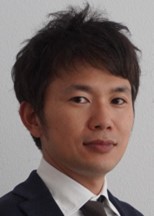ChemComm is publishing its 60th volume in 2024. Over the past 60 years, ChemComm has been the RSC’s most cited journal, and one of the most trusted venues for rapid publication of short communications. In our anniversary year, we recognise the important contributions ChemComm has made, and continues to make, in advancing the chemical sciences.
As part of our anniversary celebrations, we’ve brought together a collection featuring the latest research from some of our most loyal and dedicated authors. From those marking the beginning of their independent academic career by publishing their first article with us, to the rising stars and established leaders publishing in our yearly ‘Emerging Investigators’ and ‘Pioneering Investigators’ collections, this collection champions the contributions of our worldwide author community. We are proud many authors choose to support our journal by regularly publishing their best work with us. This collection also features papers from our ChemComm Emerging Investigator Lectureship winners, and our Outstanding Reviewer awardees, whose invaluable feedback has shaped our published content through the years.
To accompany the collection, we’ll be publishing interviews with contributing authors where they provide further insight into their research and reflect on their journey with ChemComm.
Check out our interview with Professor Koji Hirano (Osaka University) below!
What is your favourite thing about ChemComm?
Rapid but reliable review process and good circulation.
In what ways do you think ChemComm stands out among other journals in your field?
The rapid publication of newly obtained results is possible in the 4-page communication format.
How would you describe the peer review process and interaction with the editorial team at ChemComm?
All are very professional and highly valuable. Interaction with the editorial team is also barrierless.
Are there ways in which the journal can further support and engage with future generations of scientists?
To encourage the next generation, the journal should promote and highlight young first authors, involving PhD course students.
Could you provide a brief summary of your recent ChemComm publication?
We focused on C-H activation of a phosphole nucleus, which is one of key heterocyclic cores in design and synthesis of functional molecules.
In this publication, the Pd-catalyzed regioselective C2-H alkynylation has been developed. The obtained C2-alkynylated phospholes have unique alkyne-phosphole conjugations. In addition, the alkyne can be a versatile synthetic handle for synthesis of more pi-conjugated phosphole derivatives.
In your opinion, what are the next steps or potential areas of research that could build upon the findings in this paper?
Synthesis and discovery of new organic functional materials based on phosphole nuclei.
Be sure to read Koji’s Open Access Communication, “Pd-catalysed C–H alkynylation of benzophospholes” to learn more!












